Artist Critiques Social Norms and Our Consumer Culture
by Lisa Mastny | September 26, 2011

Award-winning artist Mary Ellen Croteau covers a wide range of themes, from sexuality and warfare to global politics. But a strong current of her work is a critique of our consumer culture.
“I firmly believe in the power of the visual, and my work is my voice: a social critique and a visual challenge to all the cultural detritus we are force-fed every day,” she explains. “My art is about looking at things in a slightly different way, and is intended to undermine the status quo with wit and humor.”
Based in Chicago, Croteau uses a variety of media, from traditional painting to photography to sculpture and installation. Her project "Mountains" (2008) is a series of photos of trash arranged in the shape of a mountain range. The piles include electronic waste, plastic and metal, cattle dung from feedlots, and nuclear waste.
Recent projects have focused on the use of plastic—plastic bags, plastic water bottles, and even plastic bottle caps.
One of her latest pieces is a large (8-by-7 foot) self-portrait, “Close”, made entirely of nested bottle caps and modeled on artist Chuck Close’s painted portraits. Croteau also created several “endless columns” of these caps, after Constantin Brancussi’s iconic modernist sculpture.
“Bag World”
In an earlier series, “Bag World” (2004–09), Croteau explored the ubiquity of plastic bags in the environment. Her first project involved making a braided bag rope using plastic bags that she accumulated over a seven-month period in 2004. The piece is titled “A Measure of Consumption: 225 days, 68 meters” and is intended to harken back to an era when all waste was recycled.
"I was trying to think what to do with all those bags that you get every time you go to the store,” explained Croteau. “Even if you bring your own bags, they still try to put the stuff in plastic bags before they put it in the ones you brought. And no matter what they tell you, these bags are not recycled. They are just collected and disposed of.”
For later pieces in the series, Croteau painted replicas of works by well-known artists such as Van Gogh, O'Keeffe, Monet, and Matisse, but she added her own twist by featuring plastic bags among the beautiful landscapes. When exhibited, the installation could only be accessed by wading through a bag-strewn floor, resulting in a performative interaction.
Croteau’s installation “Waterfall” is made from more than 700 plastic newspaper bags and plastic water bottles, and offers a commentary on “the plasticization of our world, and the destruction of the source of life itself.” In another series, Croteau crocheted plastic bags into replicas of dead coral reef, part of the Hyperbolic Crocheted Coral Reef project. Croteau talks more about the "Bag World" series in a video interview (below).
"Ad Me"
In another recent series, "Ad Me" (2010), Croteau photographed children imitating models posing in magazine advertisements. The children were asked to pick an ad from the New York Times Fashion Magazine, study it, and pose themselves as they saw the models do.
"This project was designed to help kids (young and old) really look at advertising, and see how media images are constructed to manipulate our self-image," Croteau explains.
"The resulting photos say as much about the individual kids as they do about the ads. Some saw the vacuousness in the model’s face, some just saw the pose, but in the end what shines is the kids themselves. These faces are rarely seen in American media culture, but their beauty far outshines the hollow shells being portrayed in the ads."
Why Political Art?
Croteau has been asked why she can’t just make “pretty pictures.” Her response? “I can’t because I think. I can’t because I read. Because I live in this world. And I can’t because I identify with those people who are having their lives destroyed so that Americans can keep driving SUVs fueled with cheap gas…. I make political art because I can’t NOT make art that says what I feel, that rages against those who are trying to destroy us. Art is my voice.”
Croteau says she considers it a victory when she has upset someone’s complacency, and when someone who sees her art has their own feelings validated and reinforced. “We all need to know we are not alone, we are not crazy. We need to find ways to bridge the isolation that is being imposed on us in contemporary American culture.”
To Croteau, art is a way to raise provocative issues but also to tell basic human truths. “What would the world be without Kathe Kollwitz’s and Goya’s prints, Picasso’s Guernica; Dorothea Lange’s photos; Sequeiros, Rivera, and Orozco’s murals, and other great and wondrous images of people in their struggle for life? We would be left with the stupid advertisements to tell us what our life is about.”
View more of Croteau's artwork on her website.
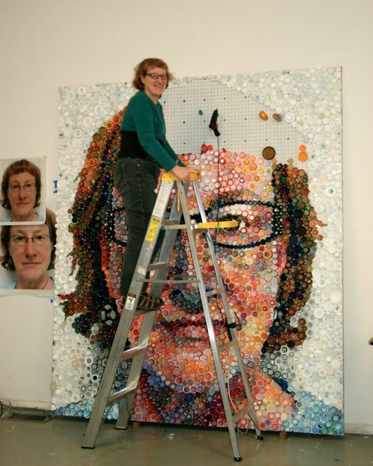
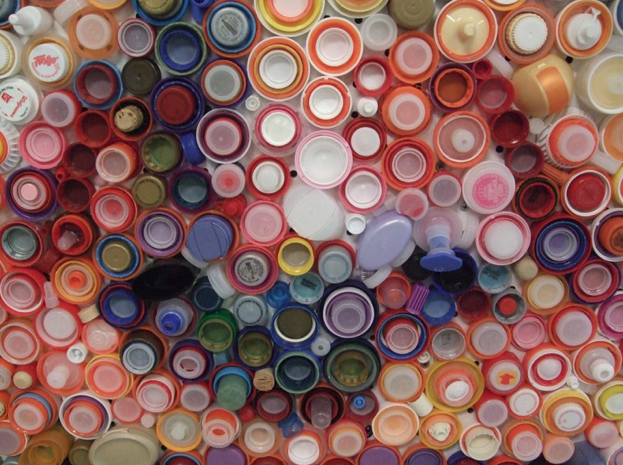
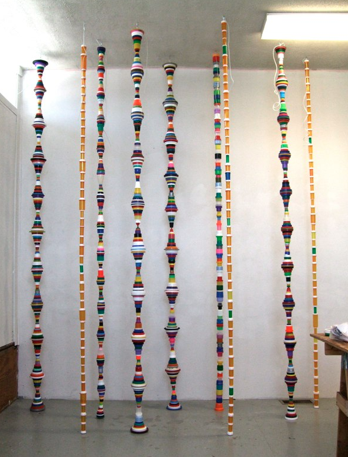
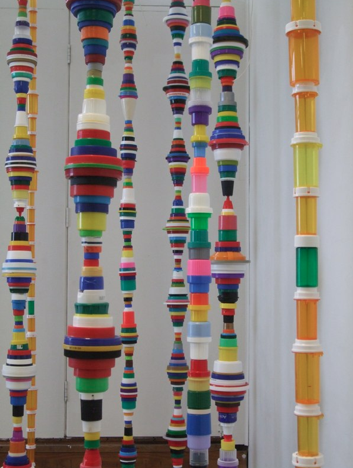
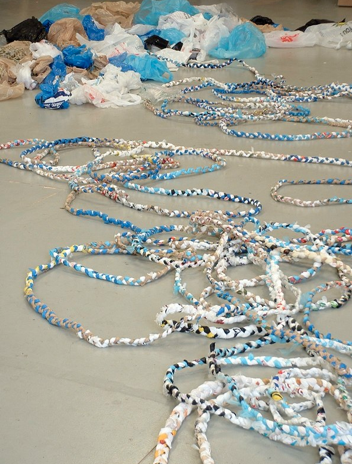
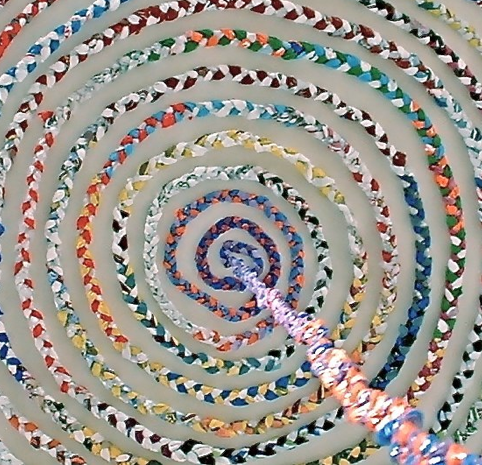
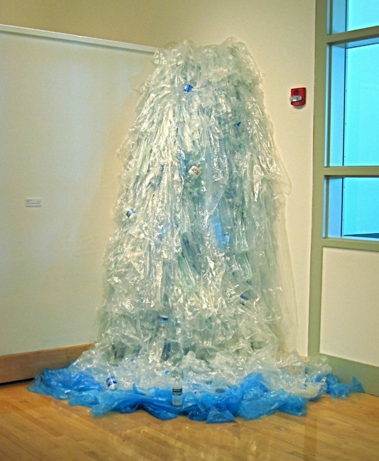
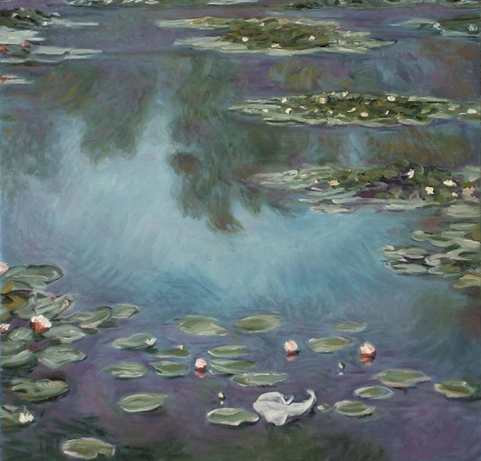
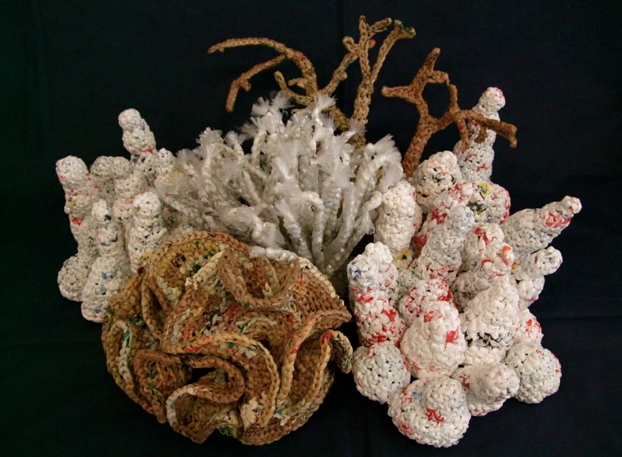
View more of Croteau's artwork on her website.
Mary Ellen Croteau studied sculpture at The School of the Art Institute of Chicago, and earned her BFA from the University of Illinois at Chicago and her MFA in mixed media from Rutgers University. She has exhibited extensively across the U.S. as well as abroad. She has lectured internationally and won numerous awards for her work, which has appeared on the cover of The Last Taboo: Women and Body Hair; New City news, Artpaper and On The Issues magazine, and has been reproduced in Ms. and other publications.

